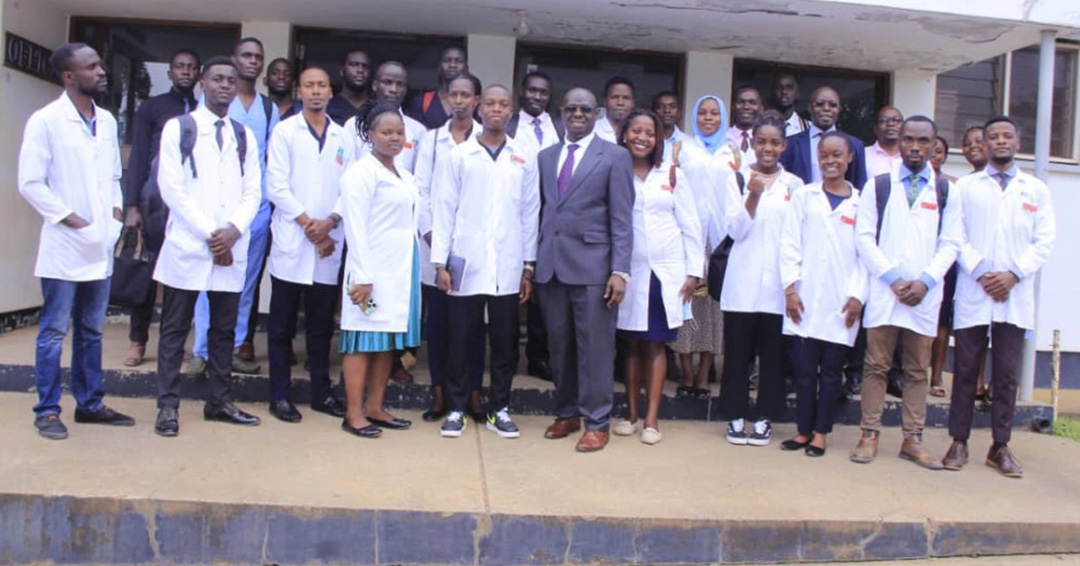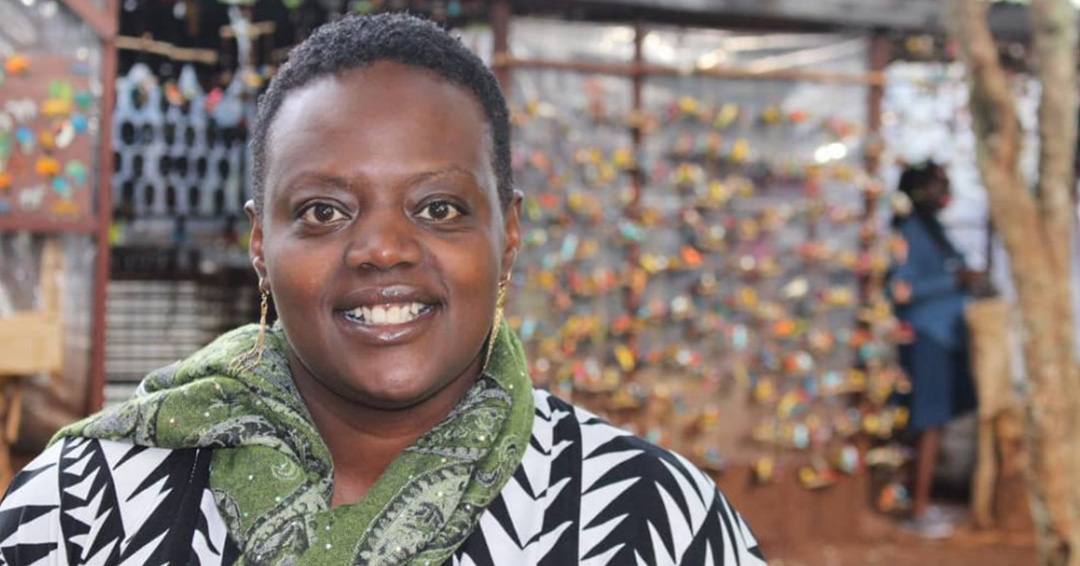
Sep
KIU Teaching Hospital Strengthens Partnership With Kitagata General Hospital
September 5, 2024, 9:40 am
 Administrator
Administrator

Meet Dr. Annah Kamugizire Amani, the Dean, Digital School of Open, Distance and E-learning at Kampala International University. Her interests are mainly focused on global health, maternal-child health, gender equality, e-learning, technology-enhanced learning, gender equity, and social determinants of disease. We cast a Spotlight on Dr. Annah because she is a remarkable woman driven by her passion for public health matters to do remarkable things, and has been instrumental in KIU's rise to the top.
1. Tell us more about yourself?�
I was born in Mbarara during Christmas time (laughs). I was born in the village so my Mom barely made it to the hospital. We left Uganda when I was about eight years old and migrated to the United States where I have lived most of my life.�
2. Where did you go to school?�
I pursued all my Education in the United States. I got my undergraduate degree in Health Sciences from California State University, Northridge, and my Masters in Public Health from the University of California Los Angeles which is one of the best public health schools in the world. I was very lucky to be able to go there. I received my Ph.D. from Clemson University.�
3. Did you get a job immediately after school?.�
Sometime after I got my Masters in Public Health, I came back to Uganda and worked as a Country Director in an organization called Unbound that does rural development work. I was there for two years and then went back to get my Ph.D. I returned around January 2017 and started working with Kampala International University in August 2017.�
4. How did you get a job at Kampala International University?�
My research interests are mainly around health. But I also got into online teaching through my department at Clemson University. They trained me to help the faculty transition their face to face classes into online classes. So when I came here, the University was looking for that skill set to lead the e-learning initiative and so they hired me to be the Dean of the Digital School.
5. What is it like to work for Kampala International University?�
It was my first Ugandan institution to work for. It's a bit different, and it has been a learning curve. I have accomplished a lot of things and gained a great deal of valuable experience.�
6. You have been instrumental in securing grants for service grant learning at the University. How has it been?�
In Uganda, people expect results there and then. Getting grants is a process and you need to be patient. You will always have to write proposals and keep networking.
7. How have your parents influenced you?�
My parents were of great influence to me. You know, when you are an immigrant child, there are a lot of expectations from you because it's like many people perished and you are most fortunate to be in this position. They expected excellence from us and indeed, we excelled.�
8. Who has been your strongest influence?�
My mother. She had me at the age of 15. She never got a chance to get educated. She always told me I was beautiful but beauty can only take you so far. She encouraged me to pursue my education so I can be able to support myself and my children. She eventually became a nurse after enrolling in the United States. She always wanted a doctor in the family. So I initially started my studies as a pre-medical student, wanting to pursue a Medical Degree. However, I found my interests were much more aligned with development and public health issues, finding solutions at a higher global/national level than seeing patients one on one.�
9. What led to your career?�
My passion to help people. Truly, my mother's experience inspired my research. Being a teenage bride and mother, many girls donc��?ct survive the public health risks associated with teenage pregnancy/birth, and this is what motivated me to do reproductive health issues, to deal with societal issues such as child marriage and teenage pregnancy.
10. You were the M.C at the recently concluded AWIT Conference 2020. Tell us about that experience.�
The AWIT Conference was for African women who are starting up businesses, projects in the technology sector. It was nice to see all these young and enthusiastic people doing so much good. It also highlighted social entrepreneurship efforts which were great.
11. What are you most proud of having accomplished?�
My Ph.D. It was a tough road in an institution that was previously an all-white and all-male institution and trying to be that person who breaks the legacy of race/gender barriers. Obviously they are working to be diverse now but still a predominantly white institution. I was the first African to graduate from my Ph.D. program.�
12. What do your friends and acquaintances think of you?�
They think I am different. I am not like other people. I think differently. While everybody else is thinking of going to the United States, here I am thinking of coming back home.
13. Where do you see yourself five to ten years from now?�
I would like to get more involved in Social Entrepreneurship Projects and mentoring some young people.�
14. What would you change if you had the chance?�
Nothing. I would not change anything. Everything leads to where we are now. All things work together for good.
15. What would you advise the fresh graduates?�
In Uganda, we are educated to get jobs. But we need to create jobs. Find something you are passionate about. Carry out research. Eventually, you will find someone of the same thinking.
Never doubt that a small group of thoughtful, committed citizens can change the world; indeed, itc��?cs the only thing that ever has (Margaret Mead) Often we are looking for development solutions from the government, global NGOs, and international aid organizations but the true solution for lasting development is each and every Ugandan. We are the ones we have been waiting for, we are the idea whose time has come. Each of us must reflect on what talents/skills/academic training we can utilize for the development of our nation. We are one of the youngest nations on the planet, this will be our strength or it will be our demise. The youth of Uganda are the solution; you are the solution! What will you do to realize a developed Uganda that takes its rightful place among the global leaders?
Kampala International University,
Box 20000, Ggaba Road, Kansanga, Kampala
+256-760 502660
+256-700 100808